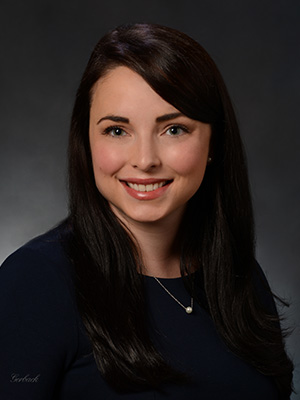World Hearing Day is held on March 3 each year to raise awareness on how to prevent deafness and hearing loss and promote ear and hearing care across the world.
To help raise awareness, Erika Walsh, M.D., an assistant professor of Otolaryngology, is sharing information about hearing loss.
What are the common causes of sensorineural hearing loss (SNHL)?
For many patients, SNHL results from a number of factors including genetic predisposition, ototoxic exposures, and, importantly, noise exposure. Noise exposure is the most common cause of hearing loss - and it is preventable.
What noises can damage your hearing?
Noise induced hearing loss (NIHL) can occur as a result of either repeated exposure to noise or to a sudden exposure to noise. The latter is often referred to as "acoustic trauma." The duration and intensity of noise exposure are both important. At 130 decibels, the delicate inner ear structure can be mechanically injured with a single exposure (an example noise would be a military jet taking off). At 80 decibels, the risk of noise induced hearing loss increases. That's about the intensity of the sound a garbage disposal or blender makes! Personal headphones or earbuds can and do easily exceed this intensity.
When should someone get their hearing tested?
Any patient with a history of ear disease - including ear infections, drainage, dizziness, or tinnitus (head noise) should have their hearing tested. An audiogram is a standardized, controlled test of the hearing performed by a trained audiologic professional. Patients with any concern about their hearing or who notice a different between their ears should have a formal audiogram. For all patients, the American Speech-Language-Hearing Association (ASHA) recommends that adults have their hearing tested every 10 years until the age of 50; then, every 3 years thereafter. Sudden hearing loss in one or both ears is a medical emergency and patients should seek immediate medical attention if they recognize this.
What treatments are available for hearing loss?
The treatments for hearing loss (not including sudden hearing loss) include strategies for effective listening, amplification (hearing aids), and, in patients with severe to profound hearing loss, cochlear implantation. The technology to help hearing impaired patients continues to evolve in exciting ways.
